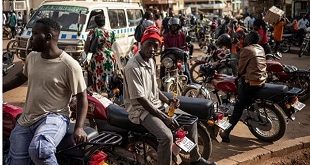
By Margaret Wakuri Madanda
Colin Barigye’s piece ‘œFreedom Vs efficiency’ that appeared in The Independent (Issue 058) made interesting reading. Barigye takes on Andrew Mwenda’s seeming inconsistencies. He cites examples that when President Kagame, for instance, punishes corrupt officers, Mwenda praises him yet when President Museveni does the same, Mwenda says it is a witch-hunt of the minister or that particular person. I partially agree with Barigye that it is rather discomforting for Mwenda (known for his quest for true democracy), to be consistently writing in support of President Kagame whose dictatorial tendencies are clear, Rwanda’s economic performance notwithstanding.
Like Barigye, I want to think that Mwenda has either become an ‘economic journalist’ or his change in opinion is a reflection of the changed sitting position on the table. Robert Kiyosaki in his ‘Rich dad Poor Dad’ argues that decision makers (employers) and implementers (workers) often have different world perspectives. Previously, Mwenda could have seen the world as an employee, the dilemma now is that while he remains a journalist, he is also an employer and entrepreneur. His perspectives could have definitely changed with time.
I was particularly disturbed when Mwenda argued in one of his pieces that policies and procedures delay processes and should at times be overlooked as long as the results are visible. While this is a good result-oriented strategy Mwenda forgets that it denies growth to institutional frameworks needed for posterity.
But going back to the arguments of Rwanda Vs Uganda, there are reasons why Rwanda seems to be a wonder country in terms of performance. The first is that Rwanda is emerging out of a transition. Transitions such as military take-over, constitutional changes, overthrow of dictators and genocide for the case of Rwanda have provided an opportunity for countries to have economic reforms and recovery. This is what happened in Taiwan, South Korea and Uganda in the first ten years of the NRM regime. Secondly, Rwanda is reaping short term benefits of a near dictatorial regime. The question that has bothered development economists is that while freedom and democracy are cherished virtues, they often breed slow development compared to autocracies. The beauty is that while there might seem to be slow growth in a democracy, therein lies growth that is more sustainable compared to the glamorous but unsustainable growth in autocracies. Duncan Green in his ‘From Poverty to Power’ notes; ”¦.that very inertia can be a blessing: one study found that although democracies have grown more slowly in economic terms than some non'” democratic countries, they have grown more steadily over long periods avoiding the booms and busts that invariably hit the poor hardest and ratchet up inequality.’ Rwanda’s economic recovery might be admirable but as long as it develops without democracy, its achievements remain short-term because one time forces of democracy will clash with the forces of economic growth and development.
But perhaps Mwenda is right in his consistent comparison of the two countries after all. What is the difference between Uganda and Rwanda especially in respect to democracy? I equally have problems the way things are run in Uganda. For example some of us think that we wouldn’t mind a Kagame leadership style if there was service delivery, if I was assured that my old mother would be treated upon falling sick without necessarily making calls to me in Kampala to provide money for malaria treatment; if I paid taxes and was assured of quality education for my children and orphaned nieces and nephews. In this way, one would trade democracy for service delivery.
The problem in Uganda is that we have a dictatorship camouflaging as a democracy and therefore making life harder. While we talk of a democracy, the government is slowly but surely closing in on people’s freedoms right from political participation, the civil society, and the media. Look at the operational environment of political parties; compare it with the NGO Act and the incoming ‘Interception of Communication Bill’. All these point to a Kagame kind of leadership yet while our counterparts in Rwanda enjoy clean environment, orderliness, commendable social services, we don’t have the same in Uganda.
The economic arena is no different because while Uganda is said to be operating under a liberal economic system, most times, there have been state favours to some business people while others have been failed. The best example is former National Chairman of Forum for Democratic Change; the late Sulaiman Kiggundu who was punished for allegedly losing people’s money due to mismanagement of his Greenland Bank yet the very government has many times bailed out Hassan Basajjabalaba, and doled out billions of shillings to the Viluppillai Kananathans (proprietor of Apparels Tri star) of this world. What makes Uganda worse than Rwanda therefore is that here; we seem to have only the bad side of things. A dictatorship and slowed development.
Ms Wokuri is the Information Officer, Action for Development
wokuret@yahoo.com
 The Independent Uganda: You get the Truth we Pay the Price
The Independent Uganda: You get the Truth we Pay the Price



